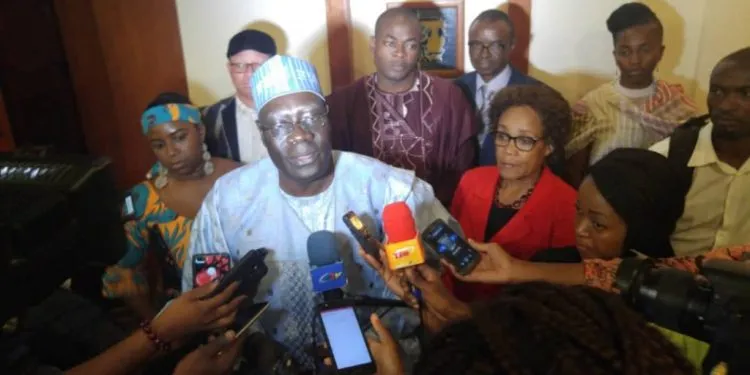By Tata Mbunwe
The government of Cameroon will launch a Biometric Youth Card in 2021 that will expose youths to numerous economic, social and financial opportunities on a free or minimal cost basis.
Youths who possess the biometric youth card will benefit from about 600 services under preferential treatment, provided directly by the Government or partner Institutions, according to the youth affairs ministry.
Coordinated by the Ministry of Youth Affairs and Civic Education, alongside the Cameroon National Youth Council, the biometric card project is part of a three-year Special Youth Plan launched by President Paul Biya in 2015.
The youth plan, costing FCFA 102 billion (US$190 million) targets four key areas: agricultural development, vocation and professional training, the digital economy (where the biometric youth ID card falls) and entrepreneurship.
Authorities say holders of the card will benefit from specific services including social security, healthcare, transportation, employment and vocational training and special skills acquisition.
Speaking at the November Parliamentary session, Youth Affairs Minister, Mounouna Foutsou, said, “…we shall operationalize the biometric youth ID card which is an important tool that will enable the youth have access to many important government services, either free or at preferential costs.”
The United Bank for Africa, UBA, will produce and distribute the youth cards following a partnership signed with the government of Cameroon on December 11, 2020.
Despite the numerous opportunities the biometric youth card envisages, it has however come under criticism by some Cameroonians who see a possibility of the card exposing personal data about individuals.
Government currently has no measure put in place to protect the privacy of individuals’ data that will be contained in the card.
This is the view opined by Colbert Gwain, a digital rights defender.
“The digital youth ID system would further complicate matters for the thousands of internally displaced and undocumented Anglophone youths who are fleeing from the raging and deadly conflict in the two English-speaking regions of Cameroon,” he spoke to Biometric News.com, an online digital news platform.
He added that the card could “exclude the millions of hard-to-reach and underserved segments of the Cameroonian youth which continue to lack access to essential and basic services.”
The government has remained optimistic about the digital ID, with Minister Foutsou adding that youths will be mobilized to embrace the innovation.
Youths from national youth bodies, including the Cameroon National Youth Council, are also supporting the plan to accompany the government in attaining a digital economy for youths.
Mimi mefo Info



